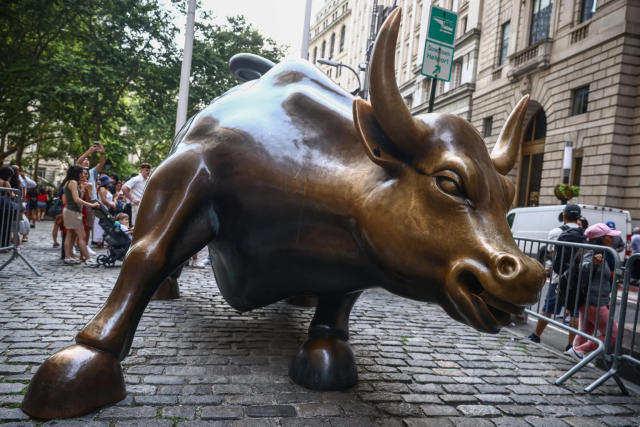The stock market faced a severe downturn last week, primarily driven by mounting recession concerns. This unsettling development was marked by significant declines across major indices: the S&P 500 lost 2.5%, the Nasdaq fell by 3.6%, and the Russell 2000, which had previously enjoyed gains due to a shift towards small-cap stocks, plummeted nearly 7%. The catalyst for these declines was a notably weak July jobs report, coupled with a sharp drop in the Institute for Supply Management’s (ISM) manufacturing index, which exacerbated fears of a potential economic slowdown.
Impact of Economic Data on Market Sentiment
The weak economic data heightened anxieties about a potential recession, leading to increased speculation that the Federal Reserve might need to adopt a more aggressive easing policy. Market expectations have shifted towards the possibility of substantial rate cuts, potentially exceeding 200 basis points. Such expectations are driven by the view that economic growth may falter, necessitating a more accommodative monetary policy to sustain the economy and financial markets.
Capital Economics’ Positive Outlook
Despite the prevailing uncertainty, Diana Iovanel, a senior markets economist at Capital Economics, maintains an optimistic perspective. In a Friday note, Iovanel suggested that the market’s recent decline might be temporary. She pointed out that heightened recession fears could lead to additional rate cuts from the Federal Reserve, which could, in turn, support a rebound in stock prices. Iovanel emphasized that stock valuations are not currently signaling an imminent economic collapse, and credit spreads remain close to record lows, which typically indicates a stable financial environment.
Iovanel’s analysis includes a forecast that the Federal Reserve will likely continue to cut rates from September until mid-2025. This anticipated monetary policy shift is expected to support economic growth, which might recover from a temporary slowdown experienced in the latter half of this year. According to Iovanel, this positive outlook could allow the stock market, particularly the technology and AI sectors, to continue its upward trajectory despite broader economic uncertainties.
The AI Sector’s Role in Market Resilience
A significant driver of market optimism, especially in the technology sector, is the ongoing investment in artificial intelligence (AI). Recent earnings reports from major tech giants such as Microsoft, Meta Platforms, and Google reveal that these companies collectively invested $40.5 billion in AI-related infrastructure, including land and chips, during the second quarter. This substantial investment is expected to continue growing in the upcoming year, fueling further advancements in AI technologies.
The substantial spending on AI infrastructure is likely to benefit companies involved in the production of AI chips, such as Nvidia. Nvidia has witnessed remarkable revenue growth and an increase in its stock price over recent years, driven by the surge in demand for AI technology. This sector’s continued expansion is seen as a bright spot in an otherwise uncertain economic landscape.
Divergent Opinions on Economic Health
While there is optimism regarding the AI sector and potential rate cuts, some experts express caution about the broader economic outlook. Claudia Sahm, a former Federal Reserve economist and the creator of the “Sahm Rule” recession indicator, highlighted concerns about the labor market’s recent weakness. Despite ongoing growth in household income and resilient consumer spending, Sahm warned that recessions can develop gradually and then escalate quickly, suggesting that current labor market trends should not be dismissed.
Sahm’s indicator has a track record of accuracy, and her cautionary perspective underscores the potential risks associated with the current economic environment. She pointed out that while there is no immediate recession, the slow deterioration in labor market conditions could signal underlying vulnerabilities that might impact the economy in the near future.
Conclusion and Strategic Insights
In conclusion, the stock market’s recent turmoil, driven by recession fears and disappointing economic data, contrasts with a more positive outlook for specific sectors, particularly AI. While Capital Economics anticipates a recovery supported by potential rate cuts and sustained investment in AI technologies, caution is warranted given the mixed signals from economic indicators and labor market trends. Investors should stay informed about both macroeconomic developments and sector-specific advancements to navigate the current market environment effectively and make strategic investment decisions.
